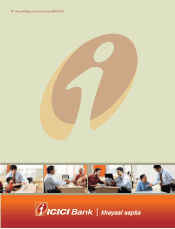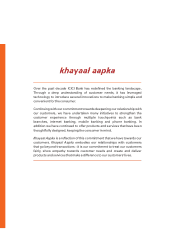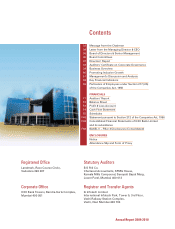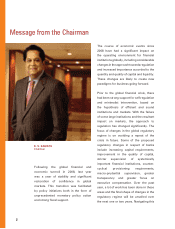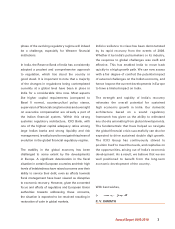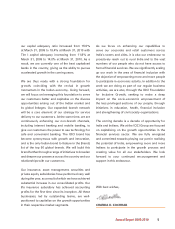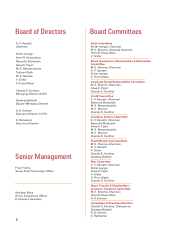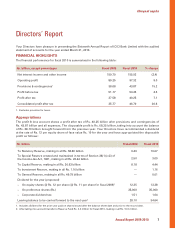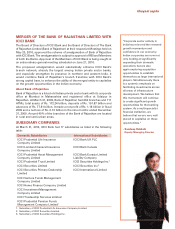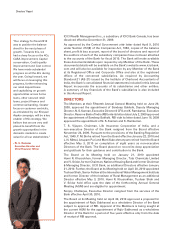ICICI Bank 2010 Annual Report Download - page 5
Download and view the complete annual report
Please find page 5 of the 2010 ICICI Bank annual report below. You can navigate through the pages in the report by either clicking on the pages listed below, or by using the keyword search tool below to find specific information within the annual report.
phase of the evolving regulatory regime will indeed
be a challenge, especially for Western financial
institutions.
In India, the Reserve Bank of India has consistently
adopted a prudent and comprehensive approach
to regulation, which has stood the country in
good stead. It is important to note that a majority
of the changes in regulations being contemplated
currently at a global level have been in place in
India for a considerable time now. Most aspects
like higher capital requirements (compared to
Basel II norms), countercyclical policy stance,
supervision of financial conglomerates and oversight
on executive compensation are already a part of
the Indian financial system. Within this strong
systemic regulatory architecture, ICICI Bank, with
one of the highest capital adequacy ratios among
large Indian banks and strong liquidity and risk
management, is well placed to navigate this phase of
evolution in the global financial regulatory regime.
The stability in the global economy has been
challenged to some extent by the developments
in Europe. A significant deterioration in the fiscal
situation in certain European countries and their high
levels of indebtedness have raised concerns over their
ability to service their debt, even as efforts towards
fiscal management have been viewed as disruptive
to economic recovery. However, given the concerted
focus and efforts of regulators and European Union
authorities towards addressing these concerns,
the situation is expected to be resolved resulting in
restoration of calm in global markets.
India’s resilience to crises has been demonstrated
by its rapid recovery from the events of 2008.
Whether it be India’s policymakers or its industry,
the response to global challenges was swift and
effective. This has enabled India to move back
quickly to a high growth path. We can now assess
with a fair degree of comfort the potential impact
of external challenges on the Indian economy, and
hence I expect the current developments in Europe
to have a limited impact on India.
The strength and rapidity of India’s recovery
reiterates the overall potential for sustained
high economic growth in India. Our domestic
architecture based on a sound regulatory
framework has given us the ability to withstand
any shocks emanating from global developments.
The fundamentals that have helped us navigate
the global financial crisis successfully can also be
expected to drive sustained double digit growth.
The ICICI Group has continuously strived to
position itself to meet the needs, and capitalise on
the opportunities, arising out of India’s economic
development. As a result, we believe that we are
well positioned to benefit from the long-term
economic development of the country.
With best wishes,
K. V. KAMATH
3
Annual Report 2009-2010

